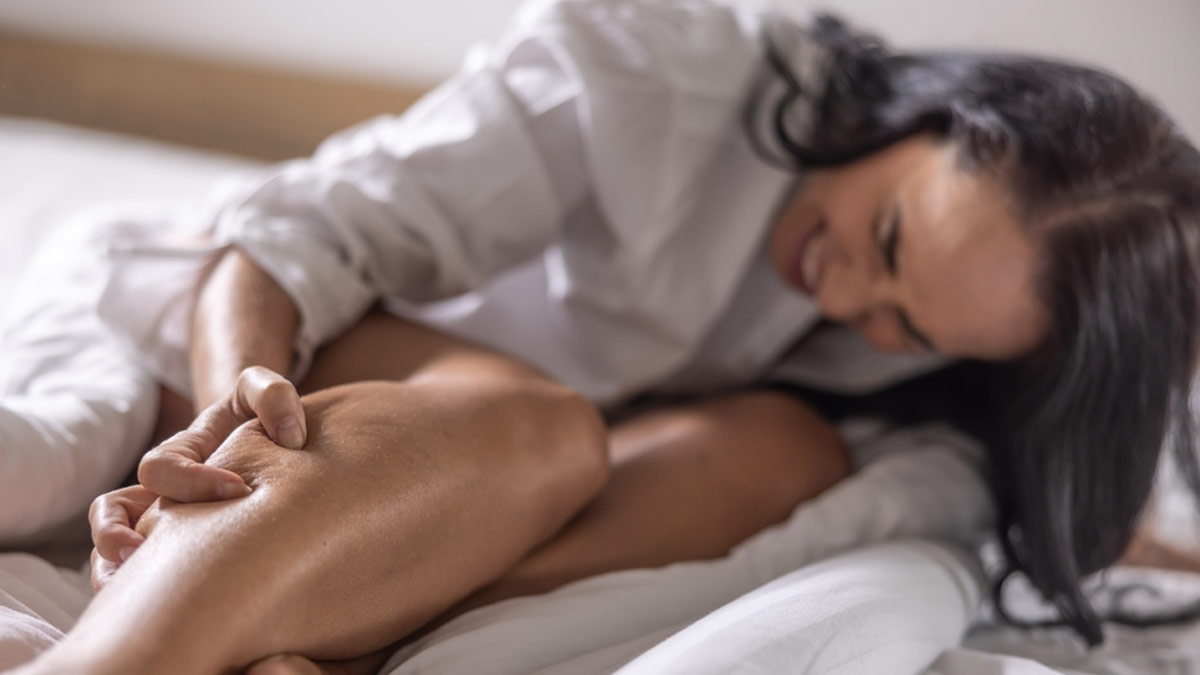
Nocturnal leg cramps are sudden, involuntary muscle contractions that typically affect the calf muscles during sleep. They are painful, disruptive, and often leave the affected muscle feeling sore. While the exact cause of nocturnal leg cramps is not always clear, dehydration, prolonged sitting or standing, and inadequate stretching are some of the contributing factors.
Table of Content:-
1. Stay Hydrated
Dehydration can disrupt the balance of electrolytes like potassium, calcium, and magnesium, which are essential for muscle function. Drink plenty of water throughout the day, especially if you are active or live in a hot climate.
2. Stretch Before Bed

Stretching the calf muscles before bed can help prevent leg cramps. A research found that individuals who performed calf stretches before bedtime experienced a significant reduction in cramp frequency and severity. A simple stretch involves standing at arm’s length from a wall, placing one leg behind the other, and gently leaning forward, keeping the back leg straight with the heel on the ground. Hold this stretch for 20-30 seconds on each leg.
Also read: DIY Pre-Workout Drinks for Energy and to Avoid Muscle Cramps
3. Ensure Adequate Magnesium and Potassium Intake
Electrolyte imbalances, particularly magnesium and potassium deficiencies, have been linked to muscle cramps. A study noted that magnesium supplementation can reduce muscle cramps in those with low magnesium levels, especially pregnant women and the elderly. Foods rich in magnesium, such as leafy greens, nuts, and seeds, can help. Similarly, potassium-rich foods like bananas, oranges, and potatoes are beneficial. If dietary changes are not enough, consult a healthcare professional about supplements.
4. Wear Proper Footwear
Wearing shoes with good arch support can prevent muscle strain that leads to leg cramps. According to a study, proper footwear that provides adequate support and cushioning can reduce muscle fatigue and cramp occurrences, particularly in individuals who stand for long periods.
5. Adjust Your Sleeping Position

Sleeping with your feet pointed downward (plantar flexion) can shorten the calf muscles, making cramps more likely. To counteract this, sleep with your feet slightly elevated or keep your toes pointing upwards using a pillow beneath your feet. Research stated that elevating the legs while sleeping reduced the frequency of leg cramps in older adults.
Also read: Facing Intense Leg Cramps? Here Are Some Ayurvedic Remedies To Deal With It
6. Massage and Heat Application
When a cramp strikes, gently massaging the affected muscle can help relax the contraction. Applying heat through a warm towel or heating pad can also soothe the cramped muscle. Heat therapy is effective in reducing muscle cramp pain due to its ability to increase blood flow and relax tight muscles.
7. Avoid Caffeine and Alcohol

Both caffeine and alcohol can contribute to dehydration and disrupt sleep, which can trigger leg cramps. A study published by the National Institute of Science found that reducing alcohol and caffeine intake improved sleep quality and decreased the incidence of nighttime muscle cramps.
8. Regular Exercise
Moderate exercise, particularly activities that improve circulation and flexibility, can help prevent nocturnal leg cramps. Swimming, walking, and cycling are excellent options.
Conclusion
Nocturnal leg cramps are not just an inconvenience; they can significantly disrupt sleep quality and overall well-being. By staying hydrated, stretching before bed, maintaining adequate levels of magnesium and potassium, wearing supportive footwear, adjusting your sleeping position, and avoiding triggers like caffeine and alcohol, you can effectively manage and prevent these painful cramps. If leg cramps persist, consult a healthcare provider to rule out underlying conditions such as nerve damage or circulatory issues.
Also watch this video
How we keep this article up to date:
We work with experts and keep a close eye on the latest in health and wellness. Whenever there is a new research or helpful information, we update our articles with accurate and useful advice.
Current Version